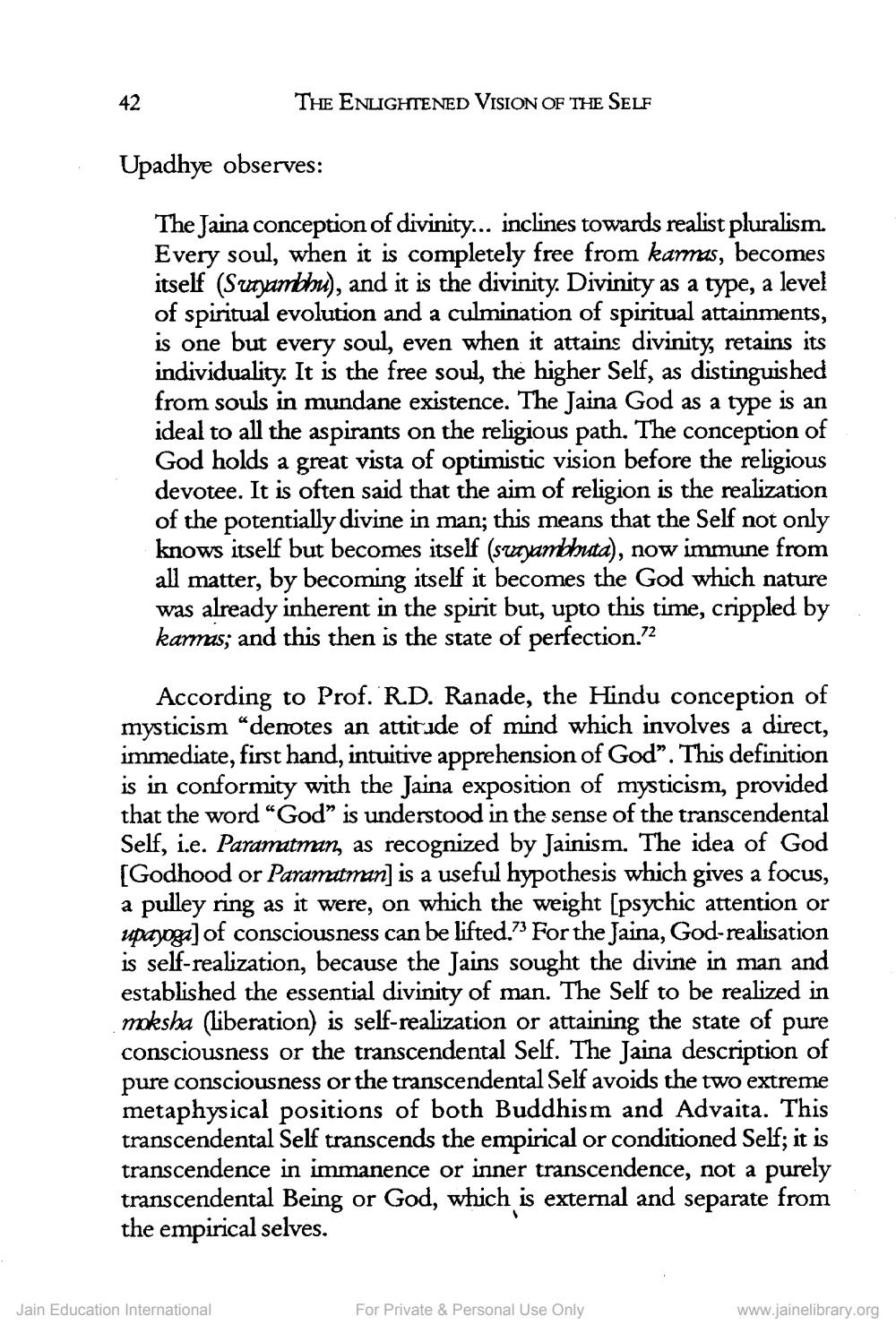________________
THE ENLIGHTENED VISION OF THE SELF
Upadhye observes:
The Jaina conception of divinity... inclines towards realist pluralism. Every soul, when it is completely free from karmas, becomes itself (Sranbmi), and it is the divinity. Divinity as a type, a level of spiritual evolution and a culmination of spiritual attainments, is one but every soul, even when it attains divinity, retains its individuality. It is the free soul, the higher Self, as distinguished from souls in mundane existence. The Jaina God as a type is an ideal to all the aspirants on the religious path. The conception of God holds a great vista of optimistic vision before the religious devotee. It is often said that the aim of religion is the realization of the potentially divine in man; this means that the Self not only knows itself but becomes itself (suyambhrata), now immune from all matter, by becoming itself it becomes the God which nature was already inherent in the spirit but, upto this time, crippled by karmas; and this then is the state of perfection.72
According to Prof. R.D. Ranade, the Hindu conception of mysticism denotes an attitude of mind which involves a direct, immediate, first hand, intuitive apprehension of God”. This definition is in conformity with the Jaina exposition of mysticism, provided that the word “God” is understood in the sense of the transcendental Self, i.e. Paramatman, as recognized by Jainism. The idea of God (Godhood or Paramatman] is a useful hypothesis which gives a focus, a pulley ring as it were, on which the weight (psychic attention or upayoga] of consciousness can be lifted.? For the Jaina, God-realisation is self-realization, because the Jains sought the divine in man and established the essential divinity of man. The Self to be realized in moksha (liberation) is self-realization or attaining the state of pure consciousness or the transcendental Self. The Jaina description of pure consciousness or the transcendental Self avoids the two extreme metaphysical positions of both Buddhism and Advaita. This transcendental Self transcends the empirical or conditioned Self; it is transcendence in immanence or inner transcendence, not a purely transcendental Being or God, which is external and separate from the empirical selves.
Jain Education International
For Private & Personal Use Only
www.jainelibrary.org




